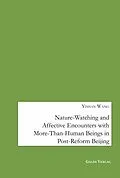This study investigates ordinary Beijingers' urban encounters with more-than-human beings through the simple yet powerful act of nature-watching (ziran guancha
)-such as bird-watching and plant observation activities, and reveals how nature-watching practices foster affective bonds and cross-species relatedness. Drawing on multispecies ethnography and affect theory, the study unsettles the notion of cities as anti-nature spaces and reimagines Beijing as a vibrant, multispecies metropolis where humans and nonhumans co-create urban life. It is a fresh and compelling look at how seeing becomes a way of relating, cultivating new forms of ethical care, civic participation, and ecological sensibility in post-reform China.
Autorentext
Yishan Wang received her DPhil in Anthropology from University of Oxford. She currently works as a research associate at China Agricultural Museum where she carries out research on cross-species relationships in urban and rural contexts.
